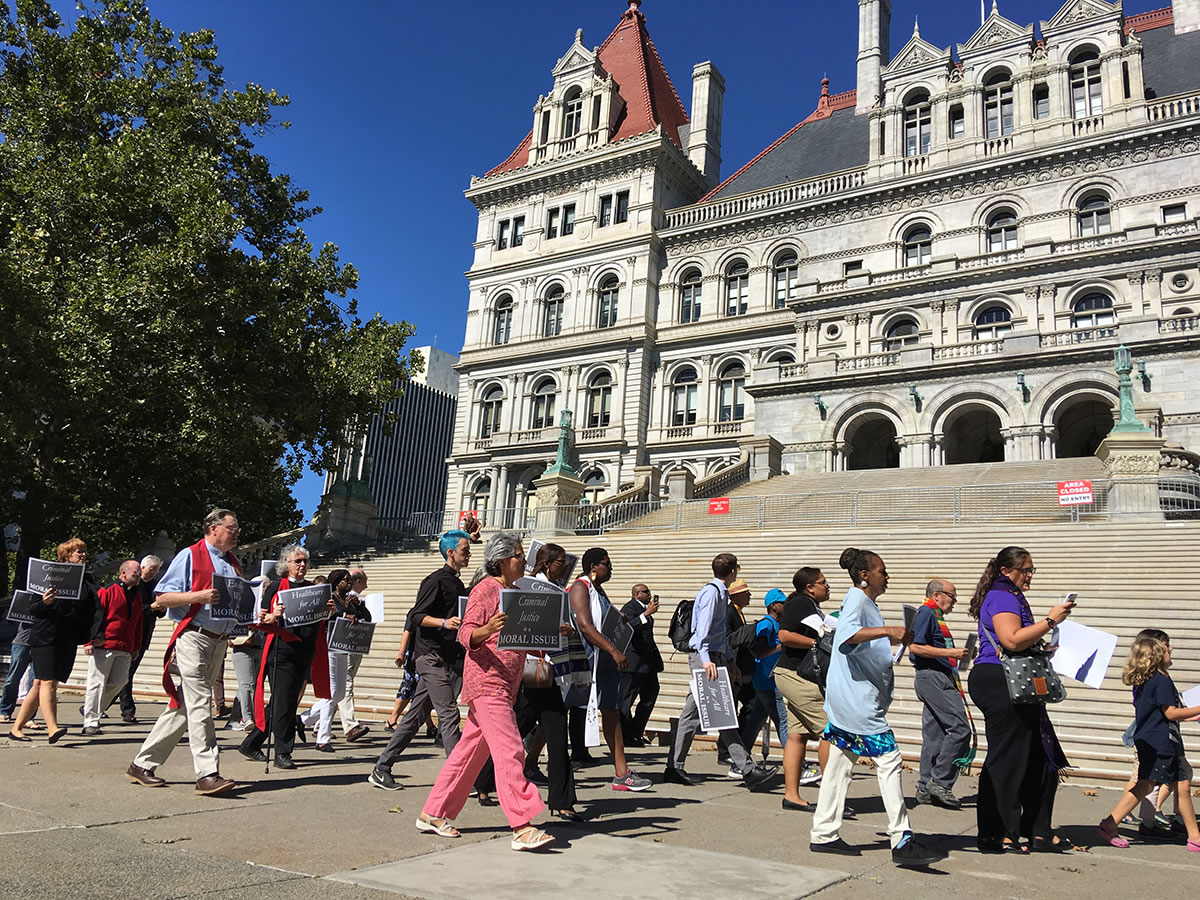

Share
The “Moral Mondays” movement, which started in North Carolina as protests over the state’s highly restrictive voter ID law, has gone national with “Moral Day of Action” protests in 30 state capitals, Washington, D.C., and other cities around the country.
Joined by unionists, civil rights groups, peace groups and other progressive organizations, the demonstrators took to the streets Sept. 12 to demand that politicians and officials commit to a platform of moral causes, including workers’ rights, voting rights, and an end to discrimination by race, sex, gender, disability or other characteristics.
Other causes, all listed in the “Higher Ground Moral Declaration” that participants presented to elected leaders in each city, included economic justice, universal health care, environmental justice, comprehensive immigration reform, campaigns against xenophobia and criminal justice reform. The petition also calls for redirecting resources away from “war mongering.”
In each city, Moral Day of Action speakers added local causes to the national agenda. For example, the Rev. Graylan Hagler, who organized the D.C. demonstration, called for statehood – and an end to ultimate congressional control over city decisions. And Washington Teachers Union President Elizabeth Davis demanded an end to “closing public schools and handing them over to privatizers.”
Members of UFCW Local 400 and Service Employees Local 500 were among the more than 100 D.C. marchers supporting Davis, Hagler and the other speakers.
In Albany, N.Y., participants delivered the petition after a march down State Street to the state capitol. The New York version calls on officials to “respond to the urgent needs of the poor, people who are ill, children, immigrants, communities of color and religious minorities,” organizers said. The New York Clergy-Labor Coalition led more than three dozen directly affected people in the march.
In Richmond, Va., marchers “called on the governor, state legislators and candidates for office to move away from extremist politics and policies that benefit the few and move toward policies and laws that are just and fair and guarantee a better life for the majority of the people.”
In Chicago, the Service Employees’ state council led workers at two big hospitals – Mt. Sinai and the Schwab Rehabilitation Center – in the nationwide Fight for $15 and a union, and tied it to the Moral Day of Action.
Certified nursing assistants at Mt. Sinai, a top-level trauma center, earn the lowest hourly pay ($14.11) of any such top-level trauma center CNAs citywide, SEIU said. Schwab workers also earn under $15, the union said.
A week before the demonstrations, the Rev. William Barber II, founder of the Moral Mondays movement in North Carolina, described the goals of he movement in a speech to the Machinists convention in Chicago.
“We have a moral crisis at the heart of American body politic, and this election season is revealing it clearer than ever before in recent history,” Barber told the union’s 1,200 delegates.
Republican presidential nominee and business mogul Donald Trump “has adopted a twisted version of the Barry Goldwater-era Southern Strategy,” Barber explained. “Trump is attempting to turn working people against each other because of differences in race, religion or immigration status.
“The challenges of falling wages, mass incarceration, continuous discrimination and more are too serious to remain divided. So I want to suggest a political Pentecost in America, and maybe the Machinists are the ones to teach us how to do it.
“It’s time for us to come together – black and white and Latino and Native and old and young and Democrat and Republican and union and civil rights. Whoever you are, if you believe in a just society, it’s time for us to come together for a moral society.”

